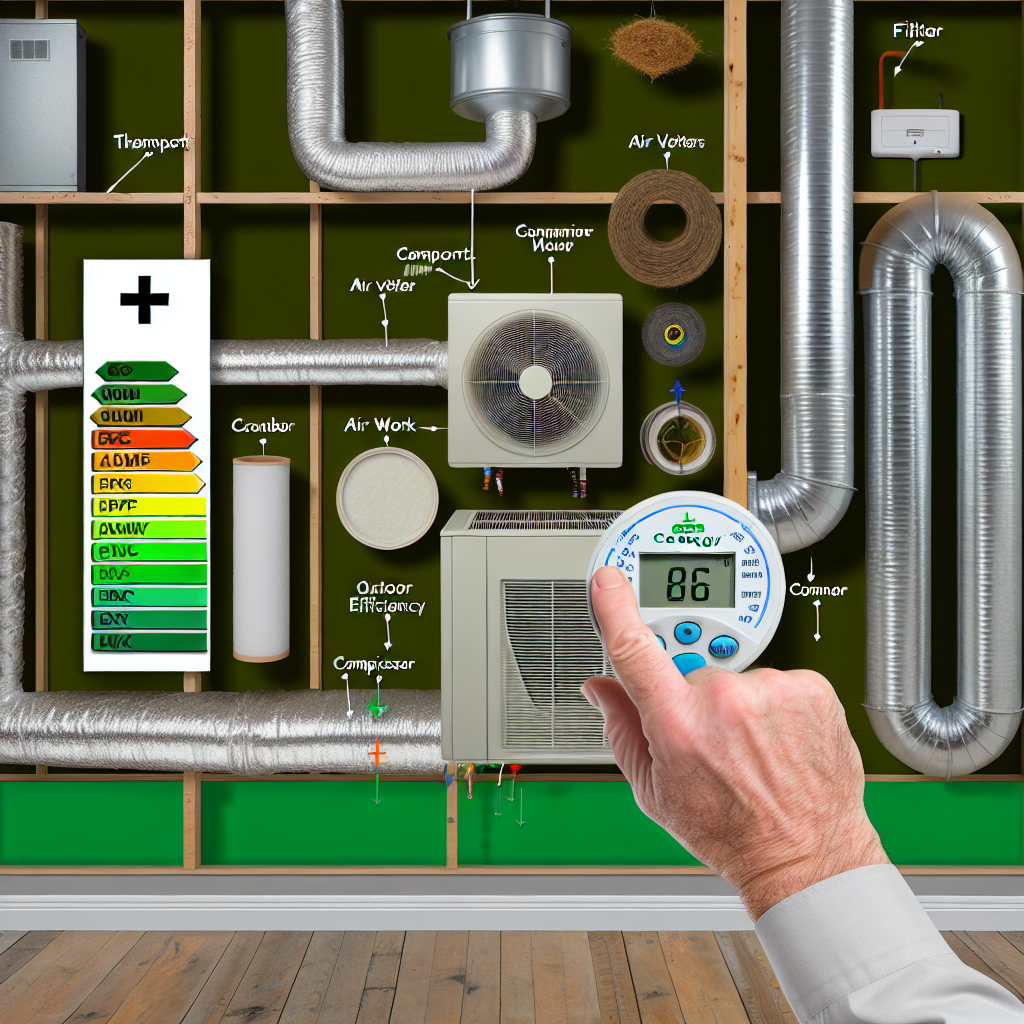Published: Dec 30, 2024

In the realm of residential energy efficiency, the HVAC system plays a pivotal role in determining the overall energy consumption of a home. However, assessing the performance of an HVAC system in isolation may not provide a complete picture of the energy efficiency of a house. This is where home energy audits come into play as a valuable tool in identifying potential energy-saving opportunities and optimizing the performance of HVAC systems.
A home energy audit, also known as a home energy assessment, is a comprehensive evaluation of a household's energy use conducted by a professional auditor. The audit typically involves a detailed inspection of various aspects of the home, including insulation, windows, doors, appliances, and most importantly, the heating, ventilation, and air conditioning (HVAC) system.
During a home energy audit, the HVAC system is thoroughly examined to assess its efficiency, condition, and overall performance. The auditor may inspect the ductwork for leaks, check the air filters for cleanliness, and evaluate the age and condition of the HVAC unit. By examining these critical components, the auditor can identify areas where energy is being wasted and recommend appropriate measures to improve efficiency.
Heating and cooling account for a significant portion of a home's energy consumption, making the HVAC system a prime target for energy-saving improvements. Inefficient HVAC systems can lead to inflated energy bills, uneven heating or cooling throughout the house, and unnecessary strain on the equipment, leading to more frequent breakdowns and repairs.
Through a home energy audit, homeowners can gain valuable insights into how their HVAC system is contributing to their energy costs. By addressing issues such as inadequate insulation, ductwork leaks, or outdated equipment, homeowners can make targeted improvements that not only enhance comfort but also reduce energy waste and lower utility bills.
One of the key benefits of combining HVAC maintenance with a home energy audit is the opportunity to maximize the efficiency of the heating and cooling system. By identifying and addressing inefficiencies in the HVAC system, homeowners can ensure that their equipment operates at peak performance, consuming less energy to maintain the desired indoor temperature.
For instance, sealing ductwork leaks can prevent conditioned air from escaping, allowing the HVAC system to deliver air more effectively throughout the home. Similarly, upgrading to a high-efficiency HVAC unit can significantly reduce energy usage and provide greater comfort and control over indoor temperatures.
While homeowners can take some steps to improve the energy efficiency of their HVAC systems, working with HVAC professionals is essential for a comprehensive home energy audit. Experienced technicians have the expertise and tools to conduct thorough assessments and identify both obvious and hidden issues that impact energy consumption.
HVAC professionals can perform tasks such as inspecting the HVAC unit for proper sizing, checking refrigerant levels, and conducting airflow measurements to ensure optimal system performance. Additionally, they can recommend energy-efficient upgrades, such as programmable thermostats or zoning systems, that can further enhance the efficiency of the HVAC system.
In conclusion, the link between HVAC systems and home energy audits underscores the interconnectedness of energy efficiency in residential properties. By conducting a thorough home energy audit that includes a detailed assessment of the HVAC system, homeowners can uncover opportunities to improve efficiency, reduce energy waste, and enhance the comfort of their living spaces. Embracing energy-saving measures not only benefits the environment but also leads to long-term cost savings and improved HVAC performance.
**

Our expert technicians are ready to assist you 24/7!
Contact Us Today!Read our latest articles for helpful information about heating, cooling, and air quality.
Regular HVAC maintenance is essential for improving energy efficiency, extending the lifespan of your system, enhancing...
Read MoreImplement these 10 tips to enhance the air quality in your home, promoting a healthier living environment for you and y...
Read MoreRegular seasonal HVAC maintenance is essential for maximizing system efficiency, ensuring indoor air quality, preventing...
Read MoreSmart thermostats offer energy savings, convenience, learning capabilities, and integration with smart home systems, mak...
Read More